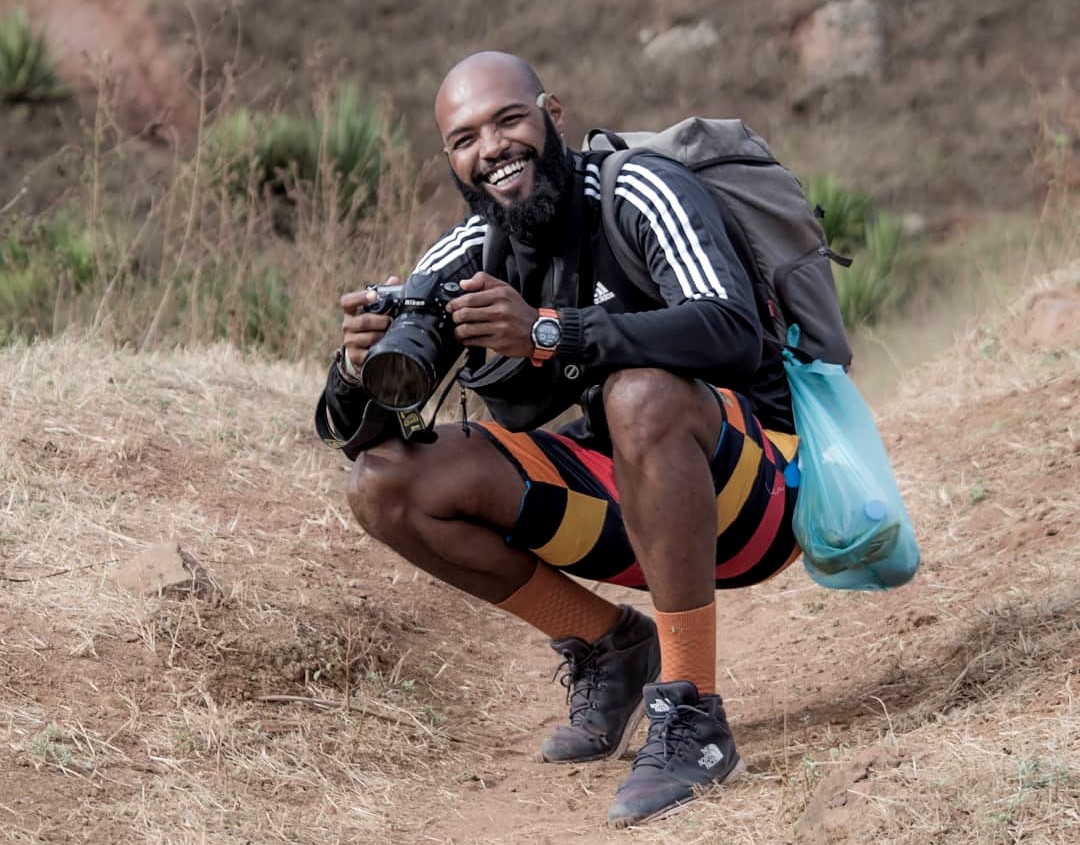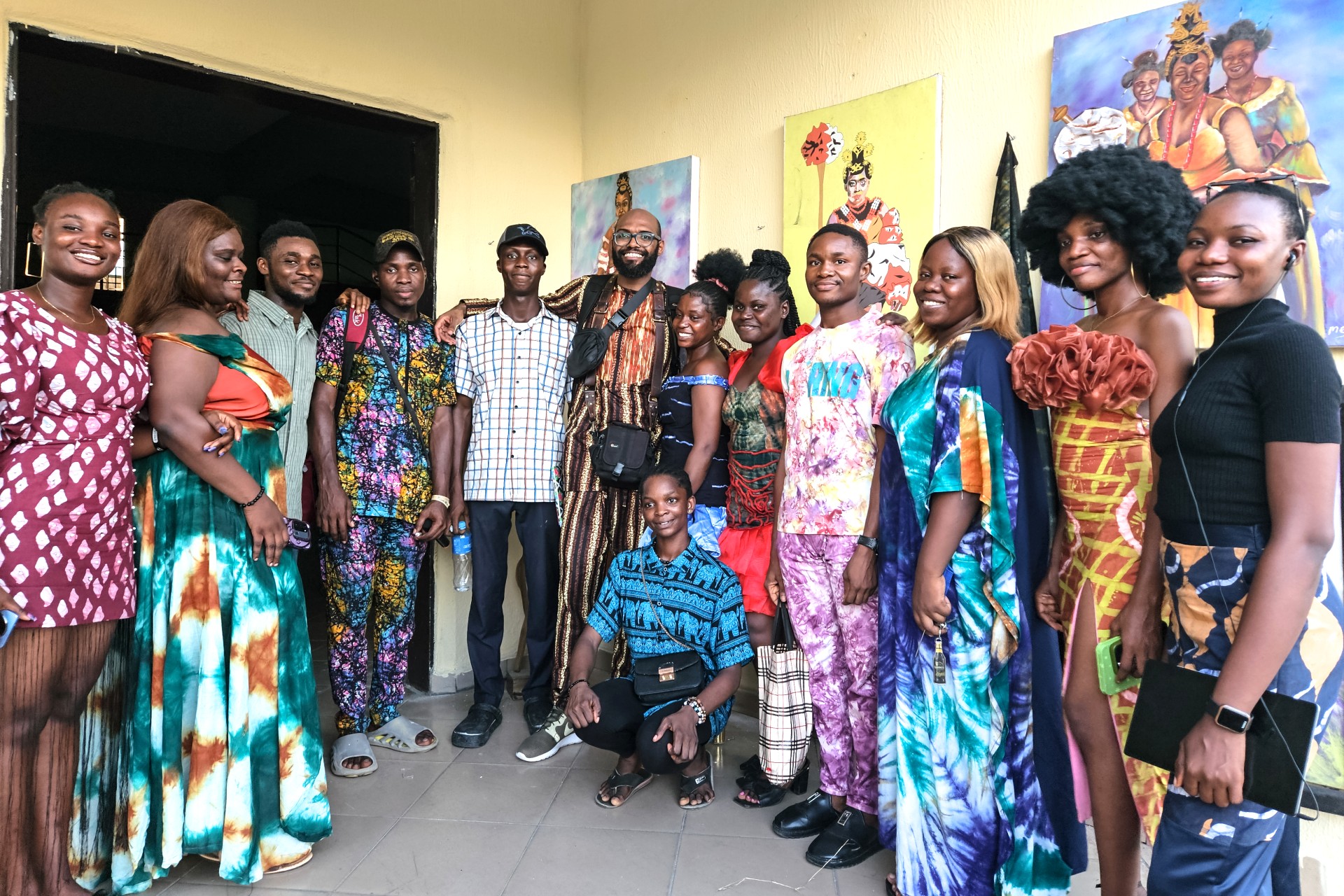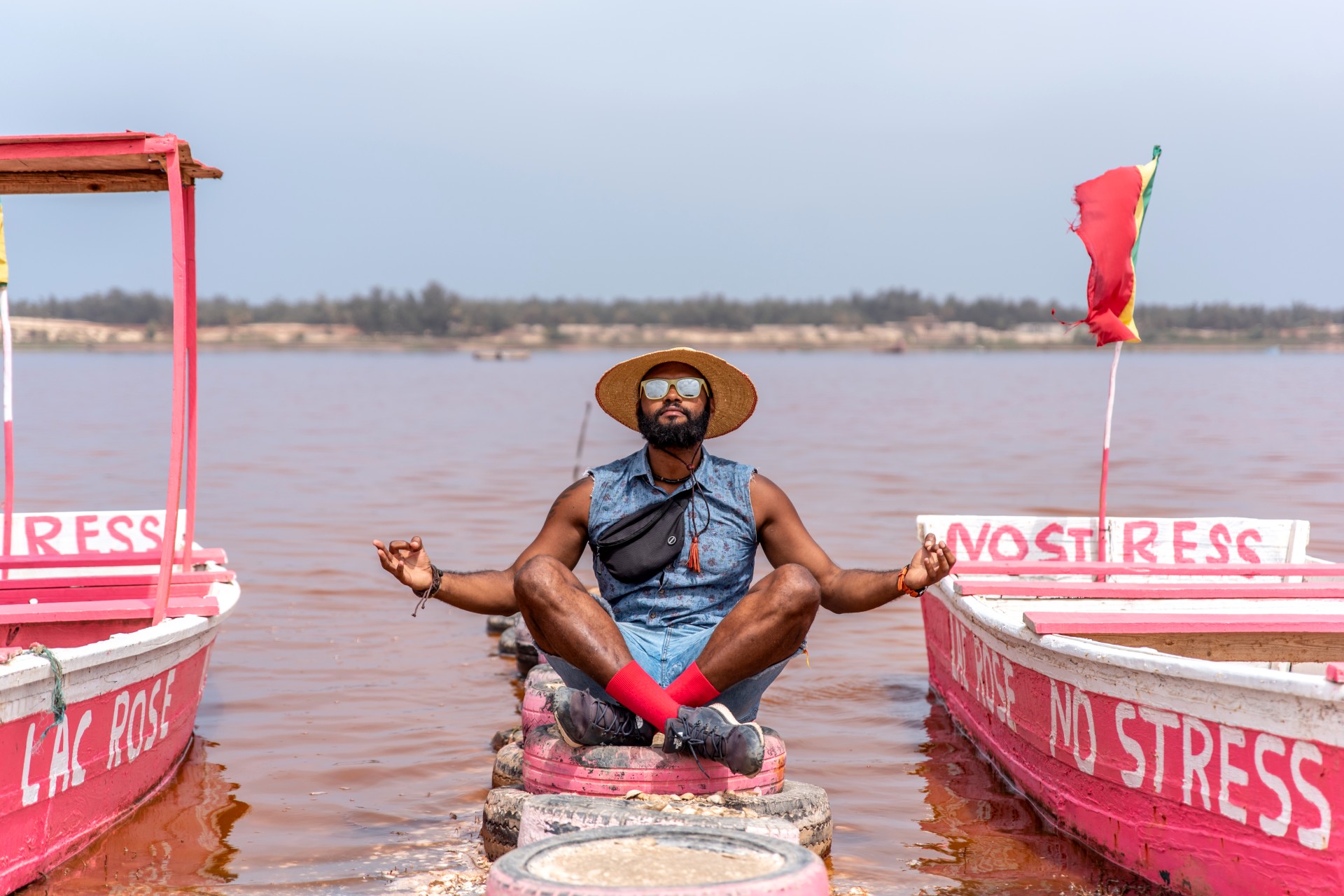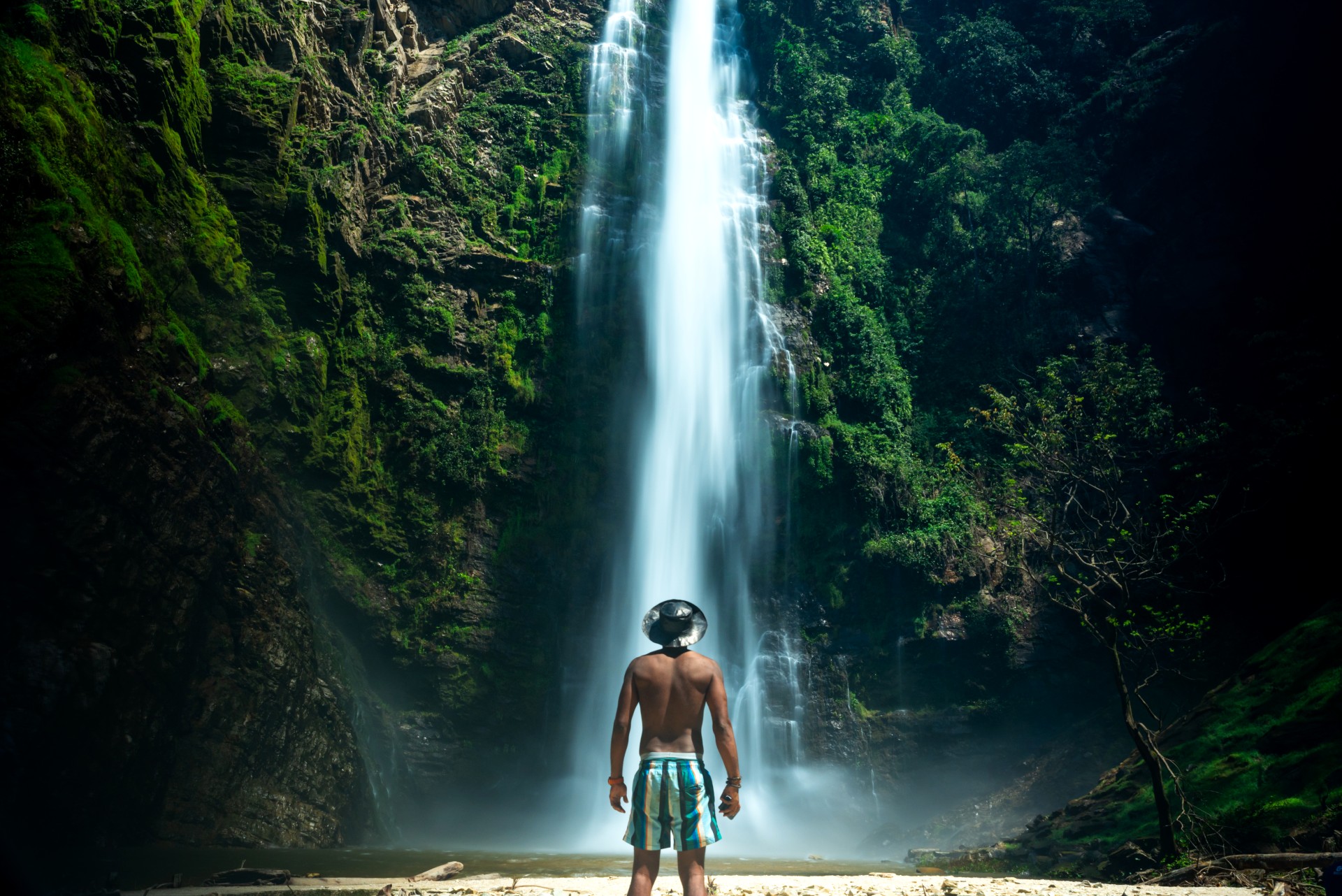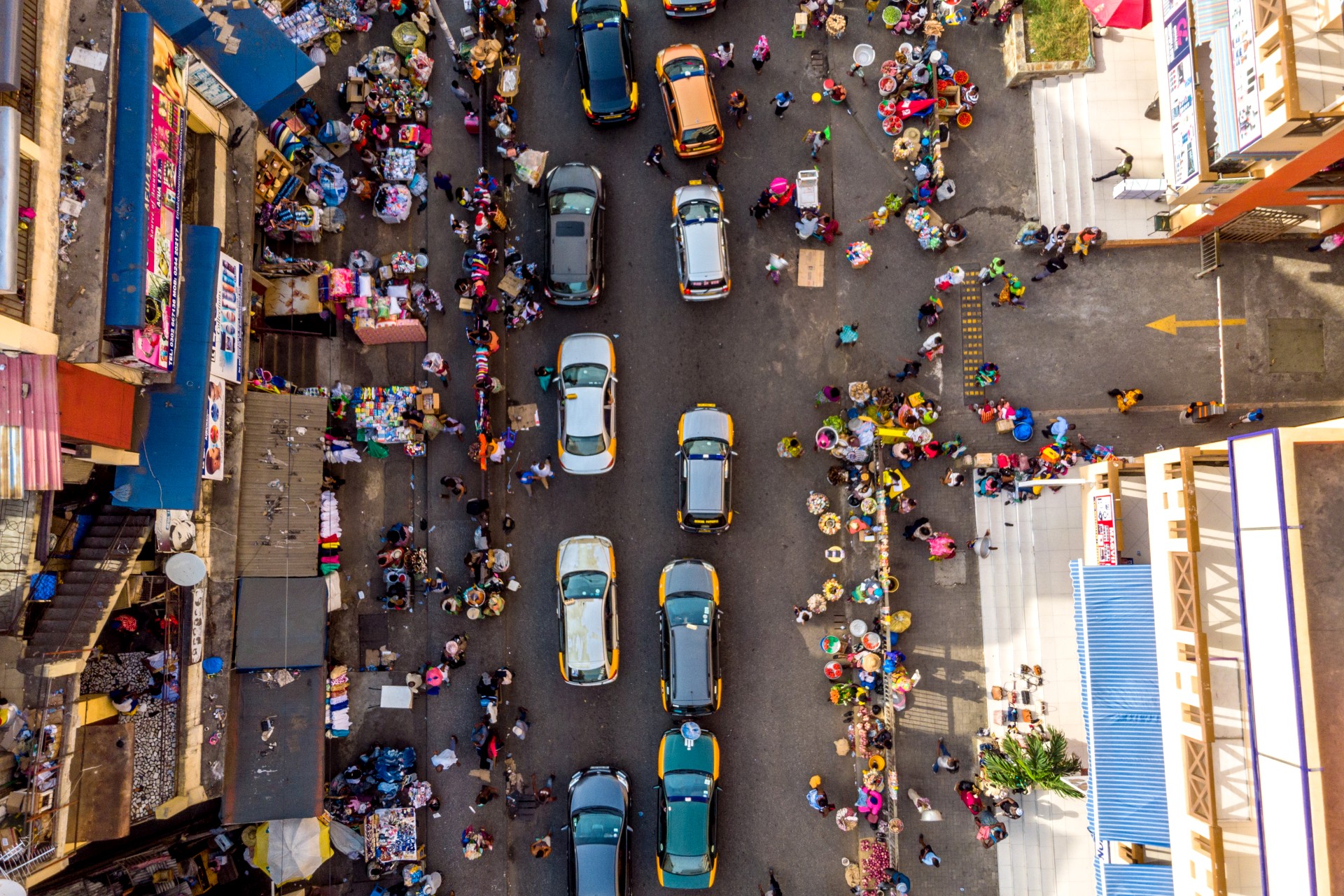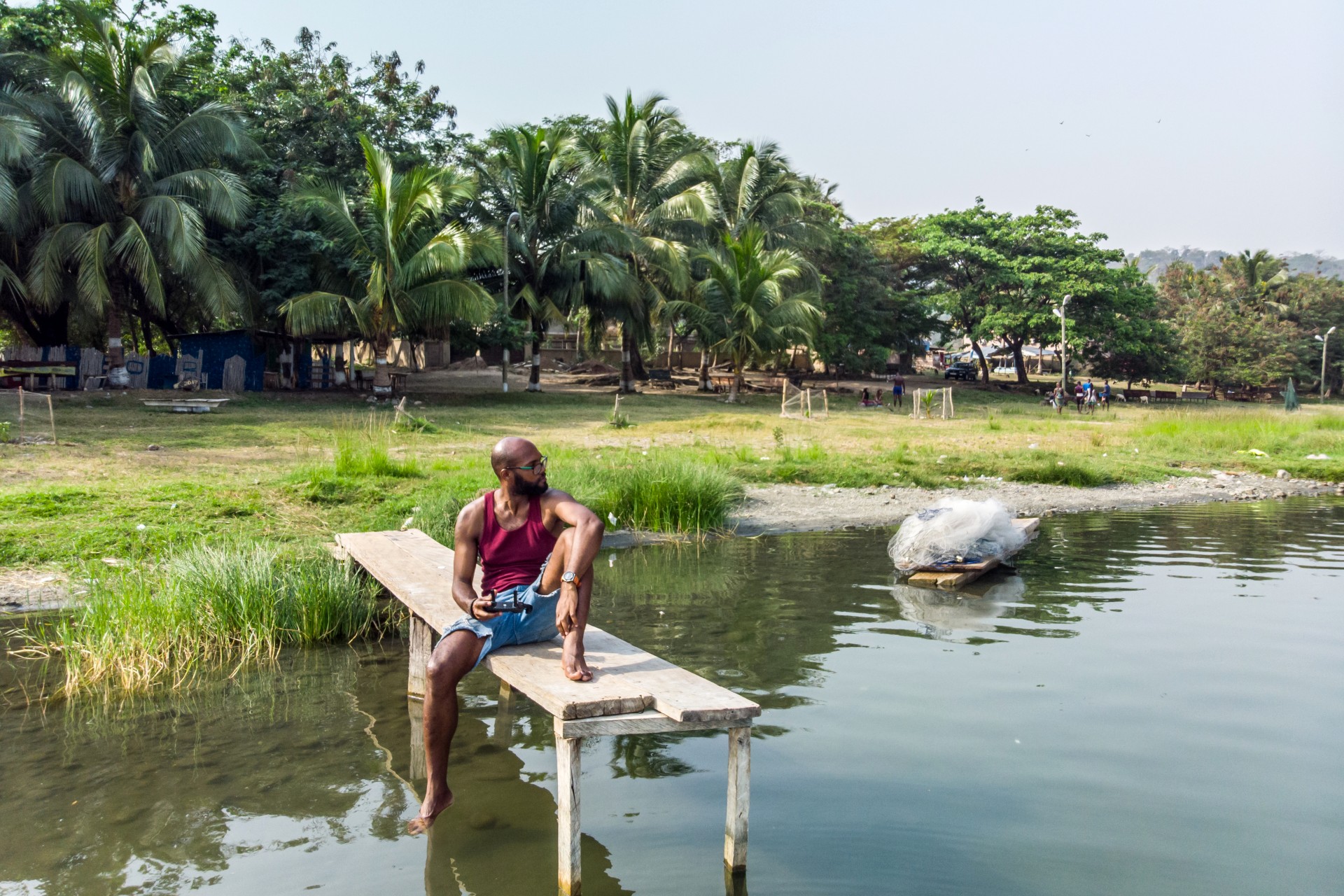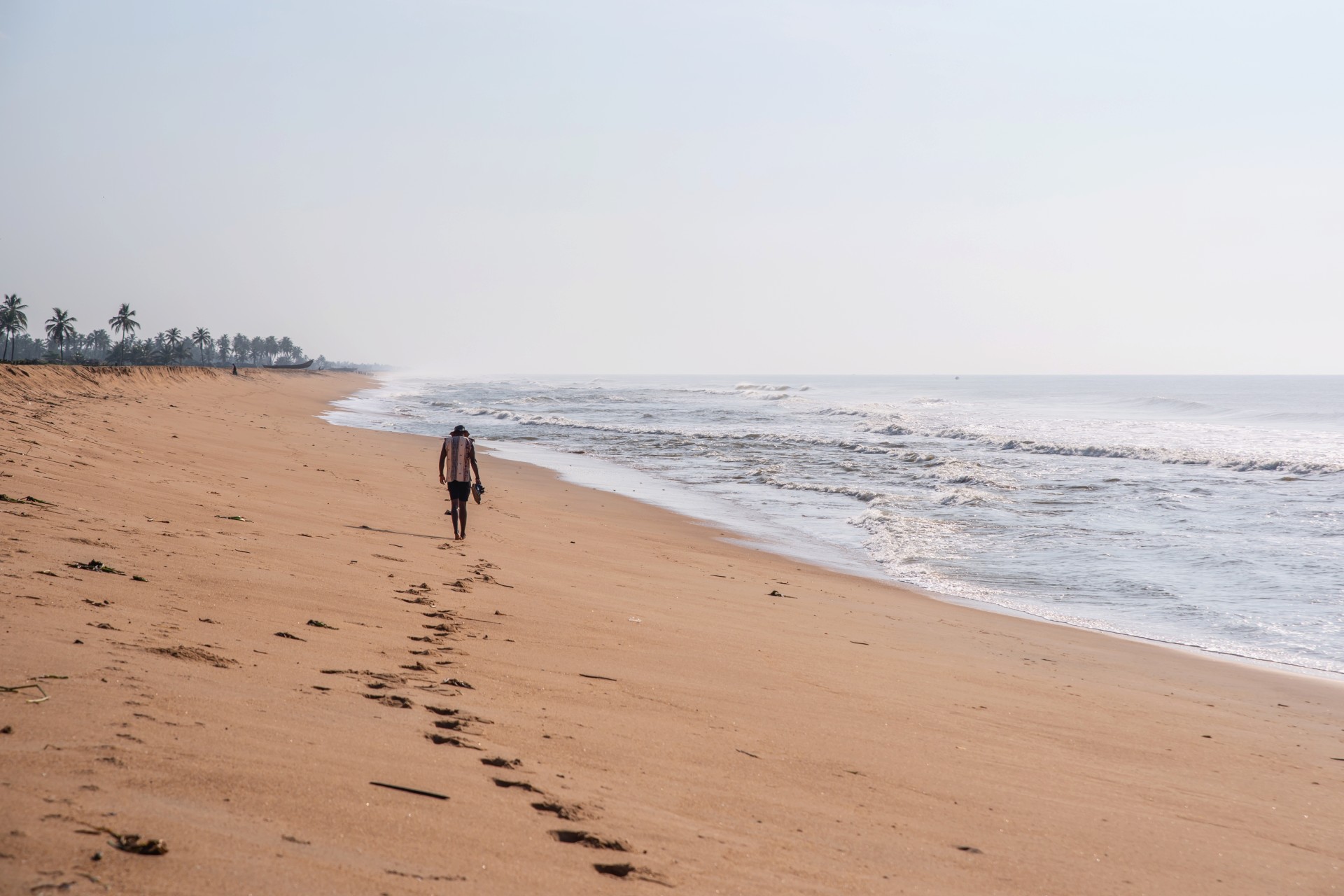As an artist-activist, Vadu Rodrigues came to Michigan State University from his native Cape Verde with a desire to not only hone his skills as a graduate student in the MFA in Studio Art program but to also fuel his decade-long efforts to transform global perceptions of Africa and the Black diaspora.
An installation artist and veteran photographer, Rodrigues has spent the past 10 years refining his artistic vision and championing global education, cultural exchange, and community engagement values while working to dismantle negative stereotypes about Africa.
Growing up in Cape Verde, an island nation off the coast of West Africa, Rodrigues became aware, through his travels, of how his native continent was represented, or misrepresented, abroad. It was during a backpacking trip to West Africa in 2016 that he decided to do something about that and began using his influence as an artist to change the narrative by creating art that helps redefine perceptions and shines a positive light on the African continent.
He founded Positive Africa, a creative movement that offers a unique blend of photography, storytelling, and cultural exchange, which aims to replace outdated stereotypes with images and stories told by African voices, highlighting the vibrancy and complexity of African culture and revealing the continent’s diversity, resilience, depth and beauty.
“I’m a West African artist with the goal to change how people see my home, my culture, and my people,” Rodrigues said. “I would love for my work to educate people, to open possibilities, to connect us more as human beings. I believe that if I can make people feel, and if I can make people more curious to learn, to understand that we are all here as human beings, to learn how to be with each other, then I think I did a good job.”
MSU exhibits
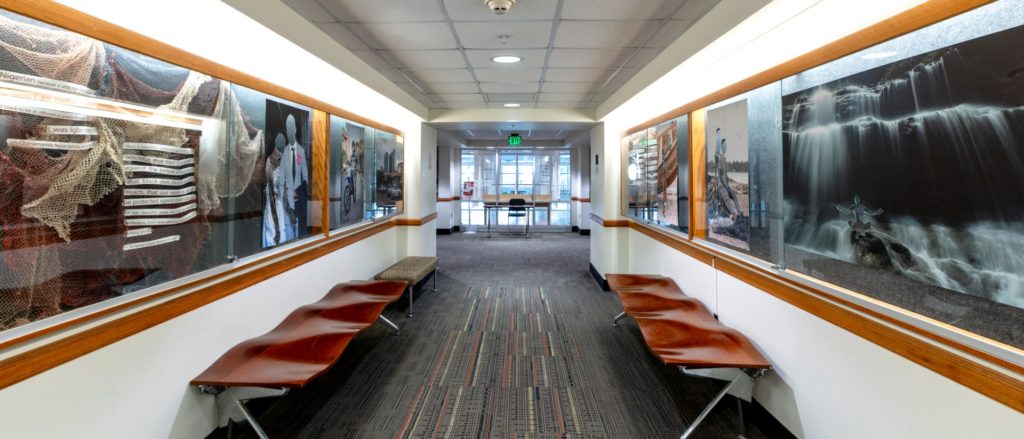
Part of Rodrigues’ Positive Africa work can be seen in a photographic installation now on display through March 10 at the Residential College in the Arts and Humanities LookOut Gallery on the second floor of MSU’s Snyder Hall. The photographs featured here also are part of Rodrigues’ “Can We All Stop Pretending?” exhibition that debuted in Fall 2024 at MSU’s Kresge Art Gallery.
“Can We All Stop Pretending?” celebrates the diverse culture of the African continent and is a deeply personal exploration of Black and African identity. It raises questions about the historical and systemic misrepresentation and exploitation of Black bodies in media and art and probes the biases and stereotypes that shape public perception.
The idea for “Can We All Stop Pretending?” began with questions Rodrigues asked himself as he pondered the concept of identity.
“What does it mean to be a Black person? Is the identity of a Black person just their skin tone? If we remove the skin tone, what can someone else see?” Rodrigues questioned. “One of the things that I noticed is when people see Black people, the first thing they think about is the bias. So, if we remove that, what else can they see?”
Using a mix of photography, metal sculpture, collage, and literary quotes from authors like Frantz Fanon and prominent African leaders like Amílcar Cabral, Rodrigues created an experience that challenges stereotypes while inviting viewers to question their own perceptions and biases. He hopes the exhibit resonates with multiple audiences — those unfamiliar with African and Black experiences as well as those who live these experiences daily. He wants Black viewers to feel seen and represented while also challenging non-Black viewers to reconsider their perceptions of Black identity.
Choosing MSU
As a professional photographer, Rodrigues has often confronted the lack of opportunities African artists have on the global stage and began thinking of how he could use photography to advocate for African voices in the media. He decided to earn an MFA to not only hone his talent and showcase his work but to also establish contact with an institution that would support him and where he could use the resources available to create opportunities for other West African artists.
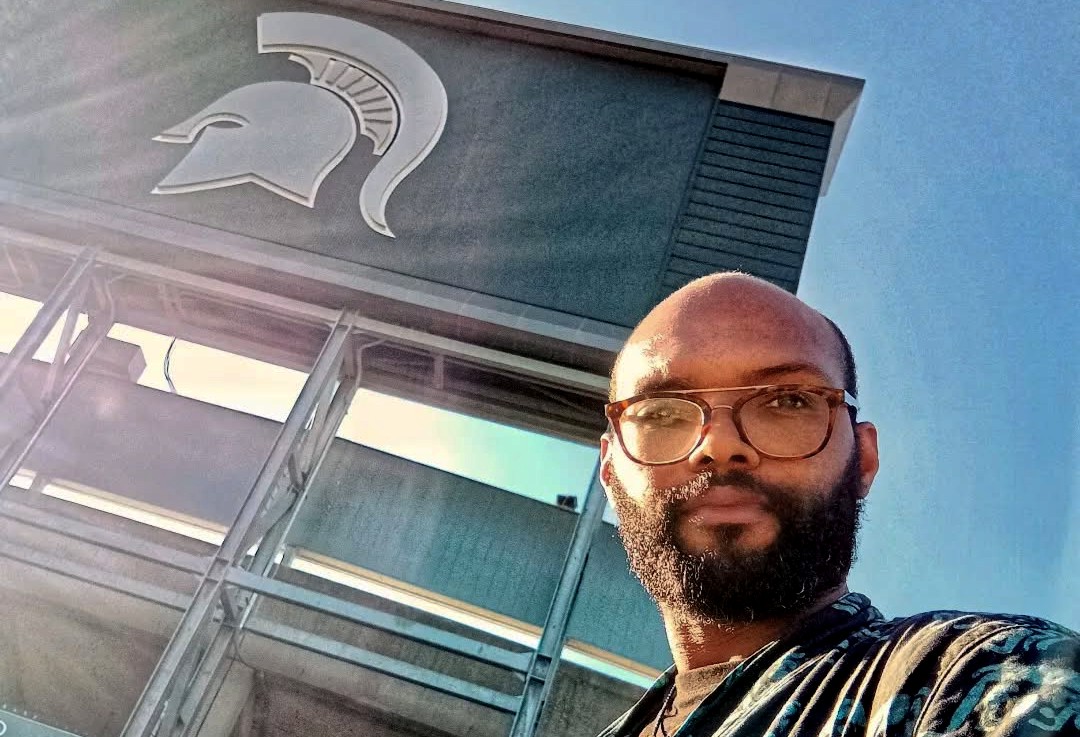
He was familiar with MSU’s campus having visited here in Summer 2022 as part of the Mandela Washington Fellowship, a six-week academic and leadership training program for emerging African leaders and innovators. During this fellowship, Rodrigues found an academic community that welcomed his mission and provided him with the resources to expand it. He was drawn in by the beautiful campus, array of facilities, and the people who supported him from the moment he arrived.
“I thought it would be interesting to come back and learn more and see the possibilities,” he said.
Rodrigues began his graduate studies at MSU in Fall 2023 and plans to graduate in Spring 2026 with his MFA in Studio Art, which is offered by the Department of Art, Art History and Design. He views his time at MSU as an opportunity to connect with a global community and learn from diverse perspectives — something he feels is essential to his growth as an advocate and photographer, and to the growth of Positive Africa.
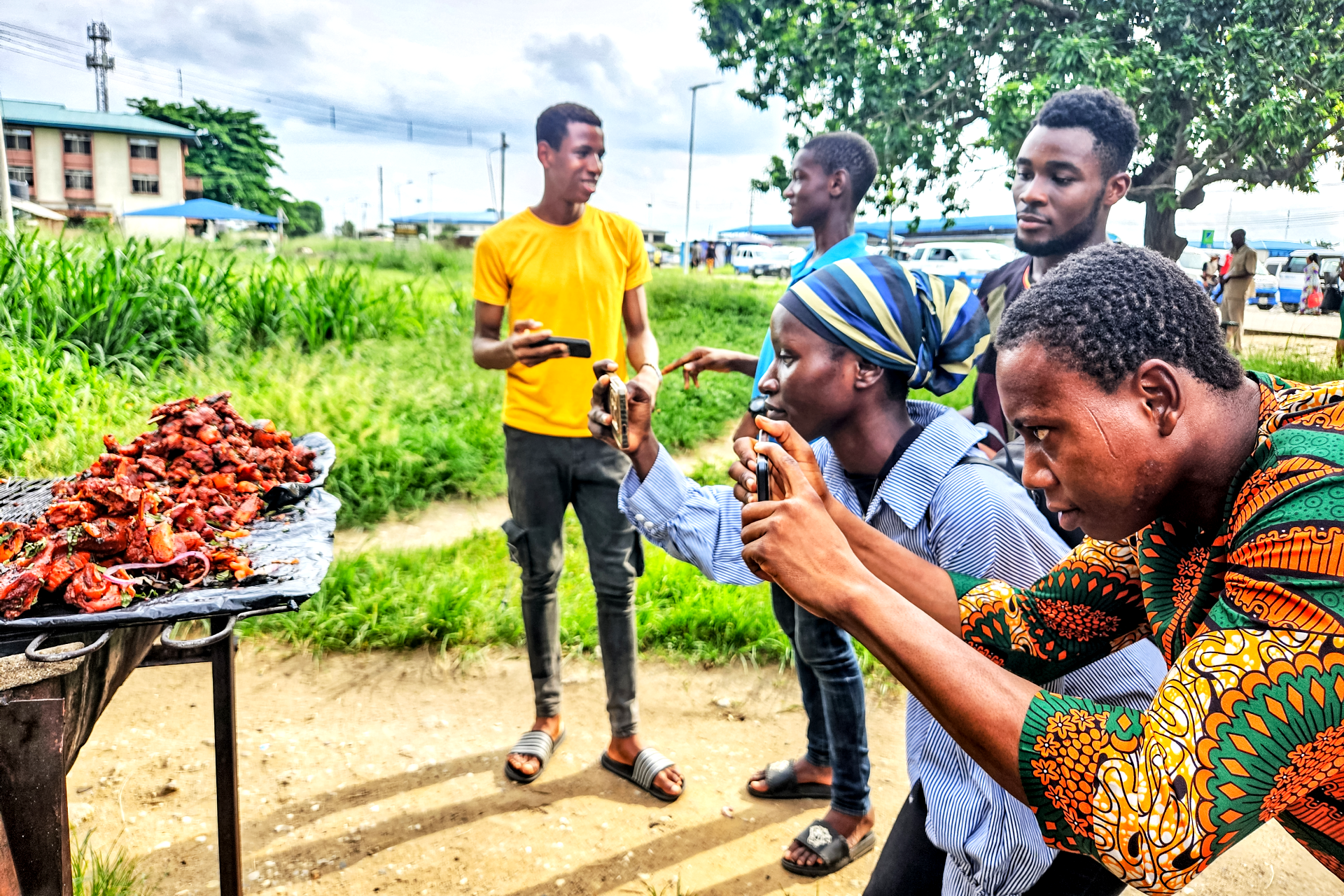
The MFA program at MSU also has encouraged Rodrigues to push the boundaries of his own work. He has explored new forms of expression, including mixed media and sculpture, and began experimenting with different ways of visually challenging stereotypes.
As part of his MFA, last summer he traveled to the University of Port Harcourt in Nigeria where he taught in an academic setting for the first time, an opportunity that allowed him to begin implementing one of his goals for Positive Africa — to educate young people.
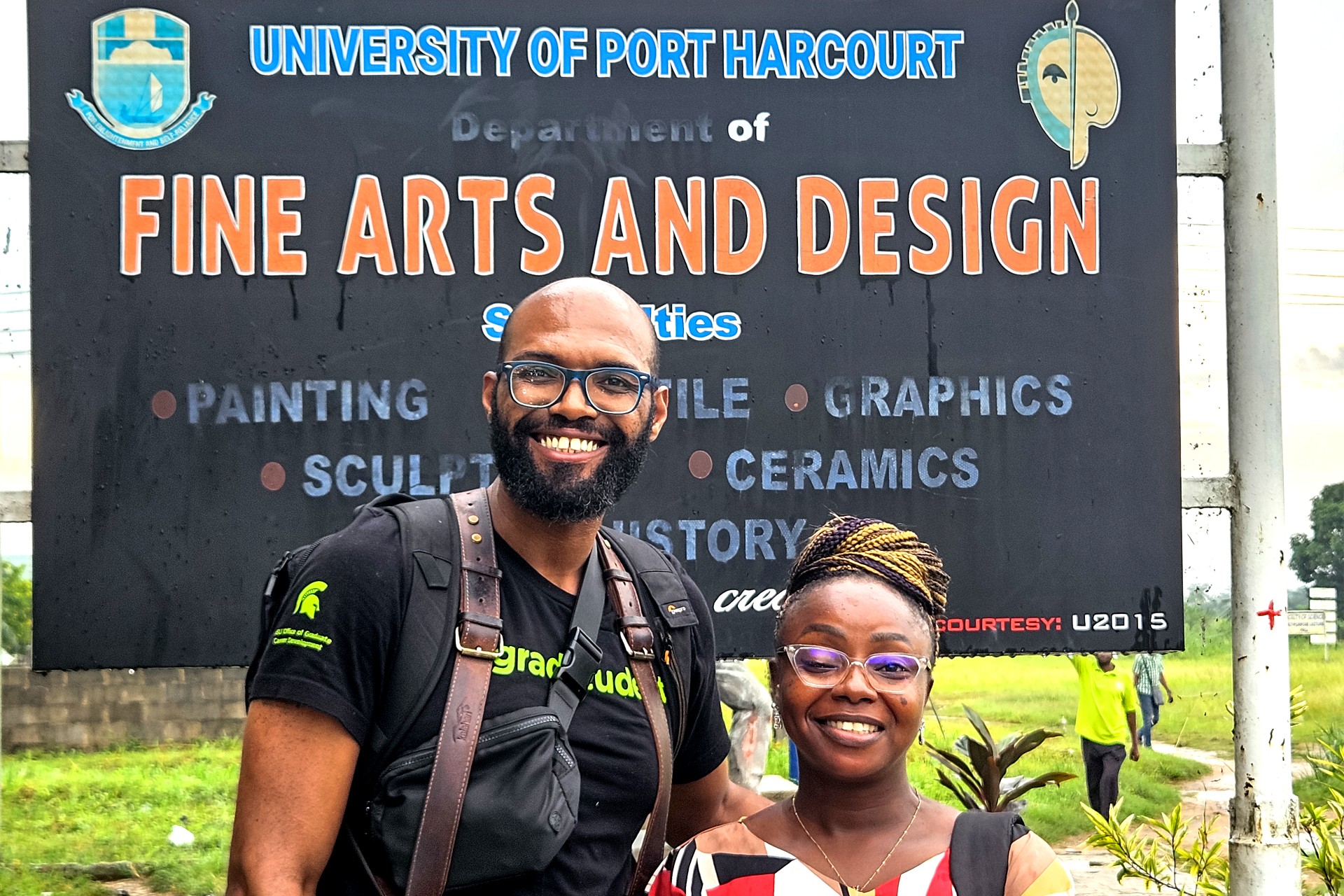
“One of the highlights of this exchange program was definitely teaching and inspiring young people how to use photography to tell better stories of their community, to use their social media to spread positivity about their community, what they love about the community, and not the challenges,” Rodrigues said.
Another project Rodrigues worked on last year was a collaborative exhibition in France, titled “A Photographic Journey to Cape Verde,” that was organized with the Cape Verde Olympic Committee in preparation for the 2024 Summer Olympics in Paris. The committee reached out to Rodrigues and three other photographers – Léo Moreau, Cristiano Barbosa and Eneias Rodrigue – to help craft a visual narrative to introduce Cape Verdean culture to the French public.
'An instant passion'
Rodrigues’ journey as a photographer didn’t begin until his final year of his undergraduate program in computer science at the Universidade da Madeira in Portugal when an opportunity to experiment with a camera changed the trajectory of his life. Up until then, he had never used or even held a camera before.
“It was an instant passion, an instant love,” he said about holding a camera for the first time. “A lot of people talk about love at first sight. That was it for me.”
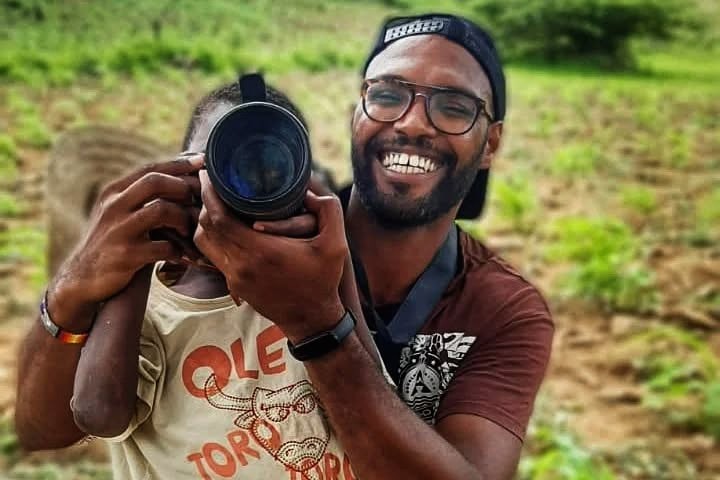
In this transformative moment, everything else slipped away while the camera in his hands awakened a creative urge, one he hadn’t completely channeled until that moment. Though he’d always been drawn to creative pursuits, even teaching himself to draw as a child, photography offered him a means of expression that felt natural and necessary.
While nearly finished with his computer science degree, something he had worked towards for almost four years, he knew his budding love and curiosity for photography wasn’t something he could ignore.
“I’m a very determined person,” he said, “and I told myself ‘Okay, this is it.'”
However, this newfound passion came with a set of challenges. Coming from a low-income background, Rodrigues faced financial and social obstacles by choosing a career that demanded costly equipment and significant time investment. Friends doubted his choice and suggested he wouldn’t be able to support himself.
“You cannot be a photographer because you don’t have money,” he remembers people telling him. However, those voices of doubt only strengthened his resolve, and he began looking for ways to finance his budding career.
“I wanted to prove them wrong,” he said. “At the time, I didn’t even have a camera, and I didn’t know much about photography, so I started exploring more and learning more, and then started investing in it.”
He applied for various exchange programs, using the funds to invest in equipment, which allowed him to pursue photography more seriously. Determined to make this career work, Rodrigues embarked on a 10-year journey of self-instruction and experimentation, learning through various exchange programs and building a portfolio.
During this time, he began to see photography as something that could bridge the gap between his experiences traveling throughout West Africa and the limited, often negative portrayals of the continent he saw on the global stage. Photography was a form of storytelling that could showcase the vibrance of his community and homeland, challenging misconceptions about African life and culture.
“I realized the power a camera can have, the power of my voice as an artist, especially as an African artist,” he said.
Positive Africa
Rodrigues’ determination to pursue photography against all odds led him to uncover its potential not only as a personal art form but also as a powerful tool for storytelling and advocacy. His evolving vision culminated in Positive Africa, in which he connects his creative passion with his mission to reshape global narratives about his native continent.
“When I started researching travel to the African continent, I couldn’t find positive information and to the point that I was afraid to travel there,” he said. “But once I arrived, I realized the images I’d seen are completely different from reality.”
What Rodrigues found was a vibrant and welcoming region filled with culture. He realized his perspective as an African photographer could be a powerful tool to the skewed narratives he’d encountered online.
“I want to tell the reality as it is, from an African perspective,” he said. “To show the world a different side of Africa, one that is true to our lives and experiences.”
Rodrigues believes that sharing the genuine, lived experiences of African people is essential to altering global perspectives and fostering a more accurate, empathetic understanding of the continent.
“Positive Africa is about telling the story from an African perspective,” he said, “in a way that showcases the positive, but also showcases the reality to try to inspire outsiders to learn more about our cultural heritage and to inspire African artists and storytellers, people that create content, to start shifting how they view things and how they tell the stories of their community.”
One of his key goals is to challenge the longstanding practice of having non-Africans dominate the storytelling about Africa.
“A lot of time, the stories of Africa are told by someone from outside of Africa,” he said. “Most of the time, outside media, especially when it comes to photography, have people from outside Africa come and photograph and tell the story. If those people don’t understand what they’re seeing, they tell it from their perspective.”
Positive Africa operates on two levels: it educates those outside the continent while uplifting those within it. Rodrigues believes that shifting perceptions requires engagement from both sides. For outsiders, it’s about expanding understanding and breaking down biases; for Africans, it’s about cultivating pride in their heritage and encouraging new ways to express it.
“In order to shift the narrative, you need to make people from the outside understand that what they’re doing is not favorable to the story itself,” Rodrigues said. “You need people inside to start capturing images, showcasing the African perspective, so it’s working both ways.”
With Positive Africa, Rodrigues is working to shift this imbalance by making sure African artists have the tools and platforms they need to share their experiences. He hopes to open doors for other African artists, bringing voices from Africa to the world stage while encouraging others to see the continent through a more authentic lens.
“Education is a big part in creating a world where we understand each other, where we learn from each other, where we inspire each other,” he said. “My future plan, after my MFA, is to use the opportunities given here to create residencies where I can give opportunities to young artists back in West Africa. I see potential for education on both sides, where students and professionals from here could learn from artists from back home and vice versa.”
This story originally appeared on the College of Arts and Letters website.
